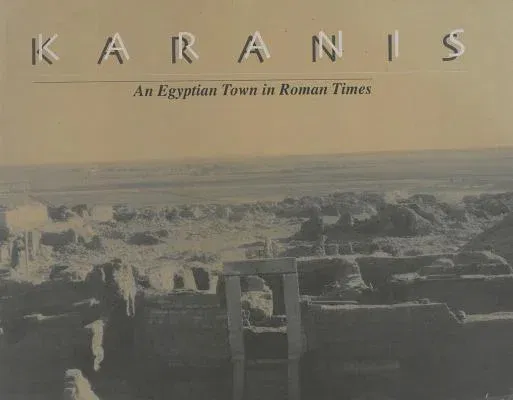Elaine K Gazda
(Author)Karanis, an Egyptian Town in Roman Times: Discoveries of the University of Michigan Expedition to Egypt (1924-1935)Paperback, 31 December 2004

Temporarily out of stock
Free Delivery
Cash on Delivery
15 Days
Free Returns
Secure Checkout

Part of Series
Kelsey Museum Publication
Part of Series
Kelsey Museum Publications
Print Length
50 pages
Language
English
Publisher
Kelsey Museum Publications
Date Published
31 Dec 2004
ISBN-10
0974187305
ISBN-13
9780974187303
Description
Product Details
Author:
Book Format:
Paperback
Country of Origin:
US
Date Published:
31 December 2004
Dimensions:
21.54 x
27.99 x
0.76 cm
ISBN-10:
0974187305
ISBN-13:
9780974187303
Language:
English
Location:
Ann Arbor
Pages:
50
Publisher:
Weight:
240.4 gm